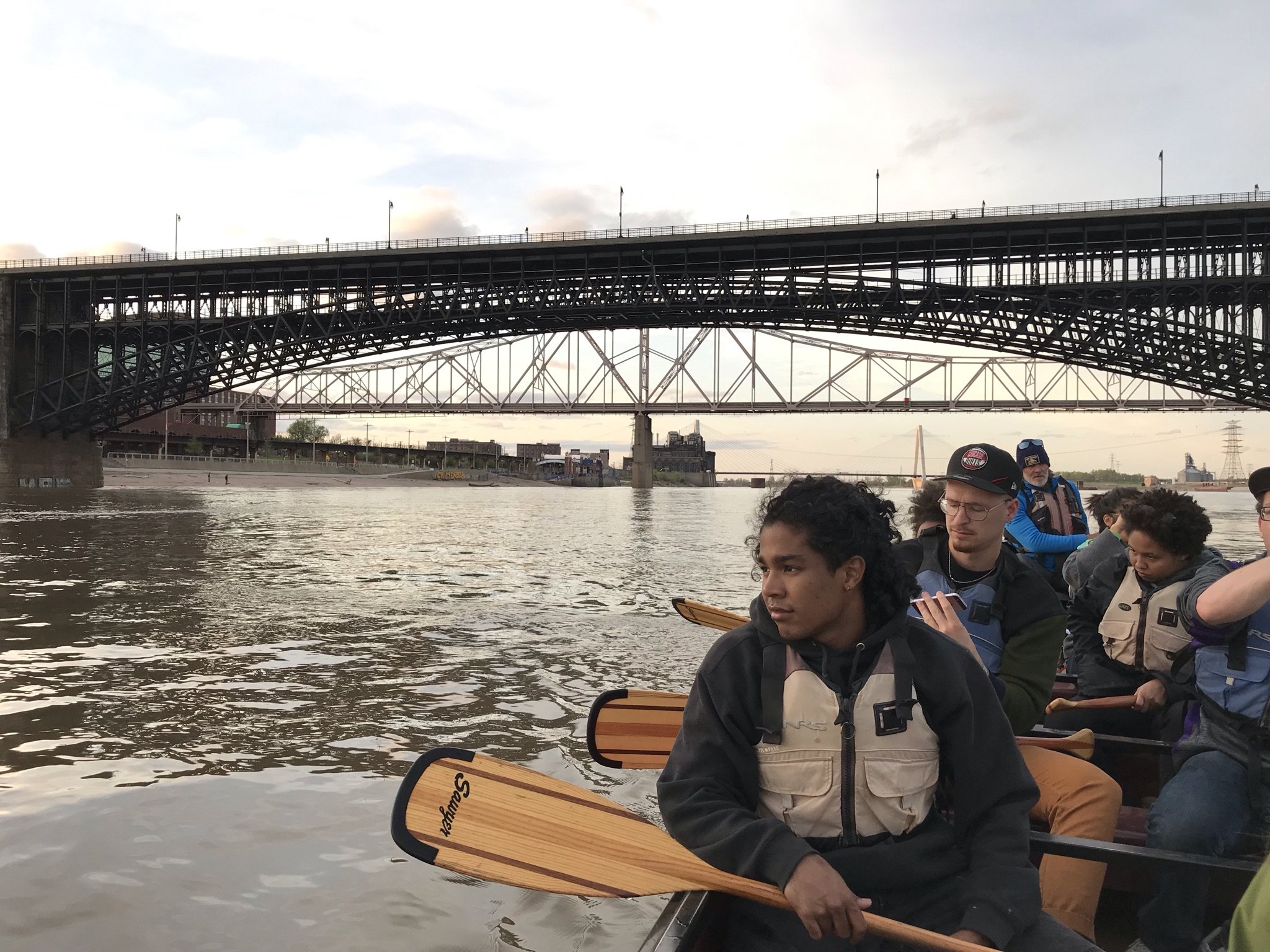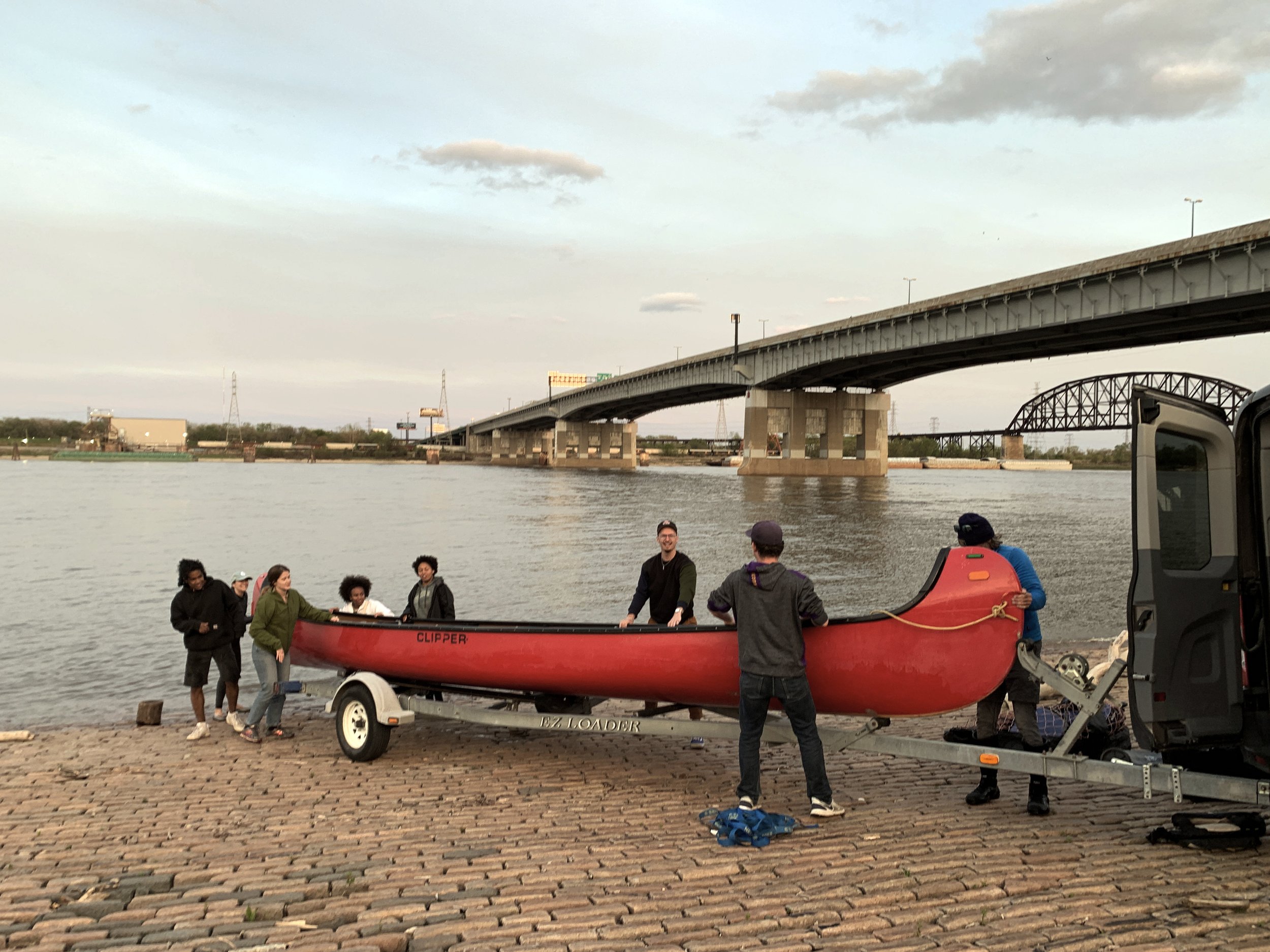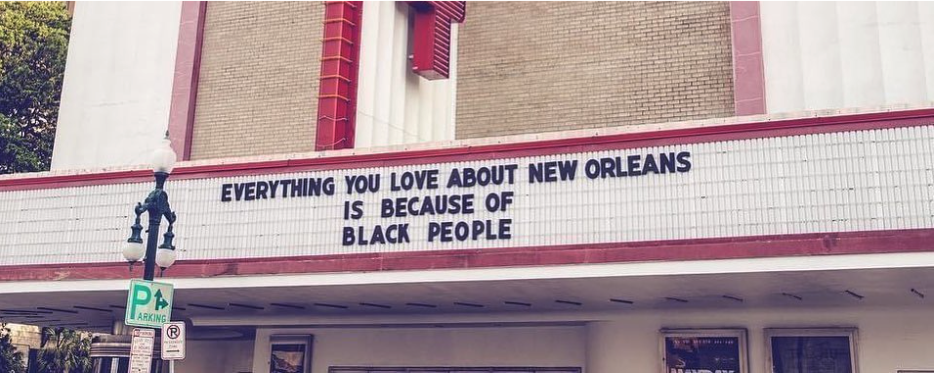











Black Geographies Canoe Trip 2022
This first-of-its-kind African and African American Studies student field trip was launched in April 2022 as part of the advanced seminar “Black Geographies: Space, Place, and Ecologies of Power.” The outing is designed as a companion to course readings that explore theories of Black space and geographic histories of St. Louis. Participants paddled from a launch point in north St. Louis to the Gateway Arch in a 30-foot canoe with expert guides from Big Muddy Adventures. During the trip, students see and discuss sites such as the Mary Meachum Freedom Crossing, the St Louis City and County boundaries, the Eads Bridge and East St. Louis Race Riot, and sites of industrial pollution along the east and west banks of the river.
Photo Credits: Dr. Kelly Schmidt and Robin McDowell
Free The Land: Black Histories of Environmental Racism
Fall 2021, 2022
Black history is inextricable from the study and discussion of environmental racism and environmental justice in the United States. Environmental racism is defined by Dr. Robert Bullard ("the Father of Environmental Justice") as "any policy, practice or directive that differentially affects or disadvantages (where intended or unintended) individuals, groups or communities based on race." This course expands and illuminates this definition through examinations of watershed moments - from the Transatlantic Slave Trade to struggles in the Greater St. Louis area today - in which Black communities bear the deadly brunt of toxic fumes, poisoned groundwater, nuclear waste, perilous disaster work, land theft, and the slow violence of biological extermination. Throughout the semester, we will read scholarly texts, engage primary sources, analyze popular and independent media, and study testimony and self published materials from Black activists.
Undergraduate student projects from FREE THE LAND Fall 2021: https://sites.wustl.edu/freetheland/
Black Geographies: Space, Place, and Ecologies of Power
Spring 2022, 2023
From the gardens of enslaved women in 19th century Louisiana to 21st century racial justice marches in St. Louis, this advanced seminar will explore the field of "Black Geographies." We will explore questions such as: How have Black communities been both enclosed and liberated by spatial arrangements of earth, sea, and sky? How do Black Geographies challenge and re-imagine conventions of social and cultural geography? What interventions are cutting-edge interdisciplinary scholars making, and what methods are they using to articulate original research? We will also spend a significant portion of class critically engaging with "Missouri Cartographies"—how historians, sociologists, and designers have depicted Black resistance and unveiled dark stories within and beyond the boundaries of our city.
Black New Orleans
Spring 2023
New Orleans is a location on a map, a collective memory, and a metaphor. But most of all, New Orleans is and has been a site of Black cultural production for centuries. While the name often conjures images of Mardi Gras beads and Bourbon Street revelers, this intermediate level seminar unpacks the complex histories of Black communities beyond stereotypes popularized by mass media and tourism marketing. We will discuss topics such as airboat tours, so-called post-Katrina “resilience,” voodoo priestess Marie Laveau, and more. Drawing inspiration from Dr. Jessica Marie Johnson’s statement that “Black New Orleans Is The Center of The World,” we will come to understand the Crescent City as a crucible and incubator of Black culture. The materials used in this course are as multifaceted as the city itself and include scholarly texts, primary sources, fiction, spoken word, music, and documentary film.
(Photo: Installation by the artist phlegm)
Introduction to Africana Studies
Fall 2022
The course provides an overview of the field Africana Studies and provides analysis of the lives and thoughts of people of African ancestry on the African continent and throughout the world. In this course we will also examine the contributions of Africana Studies to other disciplines. The course takes an interdisciplinary approach drawing from history, philosophy, sociology, political studies, literature, and performance studies and will draw examples from Africa, the United States, the Caribbean, Europe, and South America. When possible, we will explore Diaspora relationships and explore how the African presence has transformed societies throughout the world. This class will focus on both classic texts and modern works that provide an introduction to the dynamics of African American and African Diaspora thought and practice.
(Co-taught with Dr. Karma Frierson)



